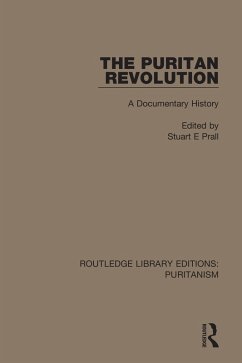
The English Revolution and the Roots of Environmental Change (eBook, PDF)
The Changing Concept of the Land in Early Modern England
Versandkostenfrei!
Sofort per Download lieferbar
44,95 €
inkl. MwSt.
Weitere Ausgaben:

PAYBACK Punkte
22 °P sammeln!
This study brings a new perspective to a pivotal debate: the causes of the English Revolution. It pinpoints the economic motives behind the opposition to the crown, and shows their connection to the changing mind-set and political transitions of the time. Distinctively, it identifies the radicalism of the mercantile sphere, and the developing claim of "freedom of trade," the basis on which parliament challenged the king's fiscal prerogative. Freedom of trade was associated with rights of consent, which were asserted as a guarantee of economic interests, and as a political principle. This infor...
This study brings a new perspective to a pivotal debate: the causes of the English Revolution. It pinpoints the economic motives behind the opposition to the crown, and shows their connection to the changing mind-set and political transitions of the time. Distinctively, it identifies the radicalism of the mercantile sphere, and the developing claim of "freedom of trade," the basis on which parliament challenged the king's fiscal prerogative. Freedom of trade was associated with rights of consent, which were asserted as a guarantee of economic interests, and as a political principle. This informed the constitutional changes pushed through by parliament early in 1641, establishing freedom of trade by parliamentary control of the customs, and giving the assembly an automatic place at the center of affairs, the first requirement of representative government. Crucially, it was not the crown but parliament that appropriated the state interest, through an independent definition of national priorities. As England coalesced into a political and commercial unit, the open and communal patterns of medieval times were overlaid. The land itself came to be perceived and used in a different way. Freedom of trade had an agrarian aspect. An extended class of gentry and yeomanry occupied consolidated farms, displacing the smallholders from the common lands. With intensified marketing, the old moral restraints on trade and property died away. A more exploitative ethic undermined the balance of relationship with the land. The book makes an original connection between the English Revolution and the processes of environmental change.
Dieser Download kann aus rechtlichen Gründen nur mit Rechnungsadresse in A, B, BG, CY, CZ, D, DK, EW, E, FIN, F, GR, HR, H, IRL, I, LT, L, LR, M, NL, PL, P, R, S, SLO, SK ausgeliefert werden.













